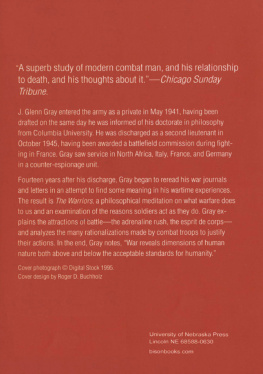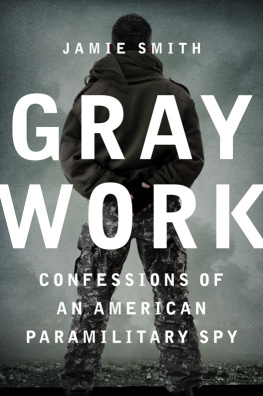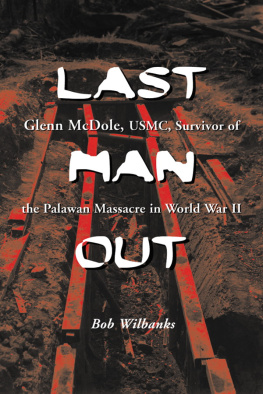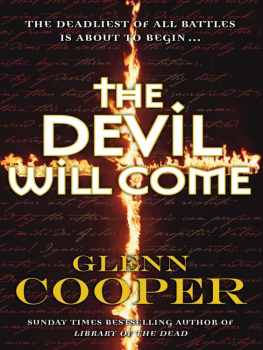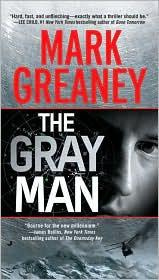J. Glenn Gray - The Warriors
Here you can read online J. Glenn Gray - The Warriors full text of the book (entire story) in english for free. Download pdf and epub, get meaning, cover and reviews about this ebook. year: 1959, publisher: UNP - Bison Books, genre: Romance novel. Description of the work, (preface) as well as reviews are available. Best literature library LitArk.com created for fans of good reading and offers a wide selection of genres:
Romance novel
Science fiction
Adventure
Detective
Science
History
Home and family
Prose
Art
Politics
Computer
Non-fiction
Religion
Business
Children
Humor
Choose a favorite category and find really read worthwhile books. Enjoy immersion in the world of imagination, feel the emotions of the characters or learn something new for yourself, make an fascinating discovery.
- Book:The Warriors
- Author:
- Publisher:UNP - Bison Books
- Genre:
- Year:1959
- Rating:5 / 5
- Favourites:Add to favourites
- Your mark:
- 100
- 1
- 2
- 3
- 4
- 5
The Warriors: summary, description and annotation
We offer to read an annotation, description, summary or preface (depends on what the author of the book "The Warriors" wrote himself). If you haven't found the necessary information about the book — write in the comments, we will try to find it.
The Warriors — read online for free the complete book (whole text) full work
Below is the text of the book, divided by pages. System saving the place of the last page read, allows you to conveniently read the book "The Warriors" online for free, without having to search again every time where you left off. Put a bookmark, and you can go to the page where you finished reading at any time.
Font size:
Interval:
Bookmark:


It is quite in keeping with mans
curious intellectual history that
the simplest and most important
questions are those he asks least often.
NORMAN ANGELL

1959 by J. Glenn Gray
Introduction 1967 by Hannah Arendt
Foreword, 1970, 1970 by J. Glenn Gray
All rights reserved
First Bison Books printing: 1998
Library of Congress Cataloging-in-Publication Data
Gray, J. Glenn (Jesse Glenn), 19131977.
The warriors: reflections on men in battle / J. Glenn Gray; with a new foreword, 1970, by the author; introduction by Hannah Arendt.
p. cm.
Originally published: 1st. ed. New York: Harcourt, Brace, 1959.
ISBN 0-8032-7076-3 (pbk.: alk. paper)
ISBN-13: 978-0-8032-8095-3 (electronic: e-pub)
ISBN-13: 978-0-8032-8096-0 (electronic: mobi)
1. War. 2. World War, 19391945Personal narratives, American.
I. Title.
U21.G75 1998
355.02dc21
98-8030 CIP
Reprinted by arrangement with the author.
The publisher does not have any control over and does not assume any responsibility for author or third-party websites or their content.
TO URSULA, MY WIFE,
FORMERLY ONE OF THE ENEMY

Something strange and disquieting happened to this book when it was published seven years ago. As a rule, very good books dont go unnoticed, just as we hope that only very bad books end up on the junk piles in editorial offices. To be sure, almost everything imaginable can and does happen to the majority of printed matter which must fall between such extremesneglect, succes destime, best-seller list; and since this could hardly be otherwise in view of the flood of publications which, year in and year out, deluge critics and readers alike, much depends upon this rule for the presence of a minimum of standards and intellectual integrity in the general climate of our culture. But exceptions prove the rule, and when we see that Glenn Grays The Warriors is among them, we can only pray that they may be rare. The book was almost entirely overlooked when it first appeared, and yet, by force of sheer availability on the market, it has acquired, slowly and surely, its own circle of not just admirers but lovers, a group of readers in very different walks of life who cherished it as a triumph of personal discovery and, perhaps for this very personal reason, began to think of its author in terms of affinity, closeness and affection, which are very rarely felt even in the presence of masterpieces. So let us console ourselves with the hope that such fraternal welcome, unmediated by critical and public opinion, awaits those authors who, for one reason or another, have not been sucked into the dubious mainstream of notoriety.
Moreover, with regard to this book, there is something oddly appropriate to its slow and intimate success. The author, an intelligence officer during the second World War, tells what he experienced and learnt during more than four years of battle and enemy occupation; and since this particular warrior, of whom a friend even then had thought as the soldier, happened to be a philosopher (he received, ironically enough, his induction notice into the Army with the same mail that brought him his doctorate from Columbia University) it took him fourteen years of remembrance and reflection to understand and come to terms with what had happened in these four years. This much time was needed to learn simplicity and to unlearn the simplification of abstract thinking, to become fluent in the art and the language of concrete thoughts and feelings, and thus to comprehend that both abstract notions and abstract emotions are not merely false to what actually happens but are viciously interconnected; for abstract thinking is strictly comparable to the inhumanity of abstract emotions, the love and hatred of collectivesmy own people, the enemy, especially in wartime, or, finally and in a mood of disillusionment, either hatred of or blind allegiance to mankind collectively [which] is doubtless as predisposed to injustice as nations are.
Hence, the first lesson to be learned on the battlefield was that the closer you were to the enemy, the less did you hate him a civilian far removed from the battle area is nearly certain to be more bloodthirsty than the front-line soldier, unless, of course, the soldier happens to be a killer, and only pacifists who hold abstract notions and emotions about war will mistake the one for the other. Thus, soldiers who cherished concrete emotions found the moral atmosphere at the front so much more endurable than in rear areas that they willingly accepted the greater strain and personal danger of combat. These soldiers became our authors spiritual brothers for they, too, would agree that Nietzsche was surely right when he wrote: Rather perish than hate and fear, and twice rather perish than make oneself hated and feared. And the second lesson was that no ism, not nationalism and not even patriotism, no emotion in which men can be indoctrinated and then manipulated, but only comradeship, the loyalty to the group is the essence of fighting morale. This self-taught concreteness, an unswerving fidelity to the real, as difficult to achieve for the philosopher, whose formal education had been abstract thought, as for the common run of men who indulge in no less abstract feelings and emotions, is the hallmark of this singularly earnest and beautiful book.
What must strike the reader to begin with in a book about war is its peculiar stillness, the softly reflecting tone of this voice that never teaches or preaches but tells in the greatest modesty what the author remembers. The remembrance begins on the first page; after fourteen years, Gray has begun to reread his war journals and letters. This sets the scene. He finds them sad and laughable and strange as they remind him of Platos description of the people in limbo at the end of The Republic. But they also make him aware of how much he has forgotten, of an absence of continuity between those years and what I have become, and now he is afraid to continue to forget since such oblivion might indeed confirm the deepest fear of my war years that these happenings had no real purpose, that they might well signify nothing or nothing much. This fear, he confesses, is still with me. From which we may conclude that he never forgot but that only now the time had come to tell.
Surprisingly enoughas though he did not know how much what he has to tell would go against the grain of fashionable convictions and modern sensibilities in these mattershe begins his tale with the enduring appeals of battle: the confraternity of danger; the powerful fascination of the spectacular; the poignancy and intensity of life in the face of death, for just as the bliss of erotic love is conditioned by its transiency, so life is sweet because of the threats of death that envelop it; the lightheartedness that comes from being liberated from our individual impotence and [getting] drunk with the power that union with our fellows brings, a feeling akin to intense aesthetic pleasure when we are so absorbed by its objects that our ego deserts us and we feel no longer shut up within the walls of the self and delivered over to the insufficiencies of the ego; finally, the wondrous compulsiveness of love in wartime when it falls upon us like a mountain wind upon an oak, shaking us leaf and bough, in the striking simile of the poet Sappho. Gray sums up these enduring appeals, quoting General Robert E. Lees remark, It is well that war is so terriblewe would grow too fond of it, in the word ecstasy that occurs again and again; for what all these experiences have in common is that men are literally standing, or rather thrown, outside their selves, whether their I passes insensibly into a we or they feel so much part of this circling world, so much alive that, in seeming paradox, death no longer matters to them. It is easy to agree that erotic love is of such an ecstatic nature, but the point of the matter is that comradeship is too, and that friendship is not just a more intense form of comradeship but its very opposite: While comradeship wants to break down the walls of self, friendship seeks to expand these walls and keep them intact. The one relationship is ecstatic, the other is wholly individual, the one is amoral (not immoral), the other guided by moral responsibility. But since all morality depends upon self-awareness, and hence a certain amount of self-love, self-sacrifice is inspired by comradeship rather than by friendship; for friendship makes life doubly dear, and the unendurable fear that grips friends on the battlefield is at the farthest remove from the recklessness of the soldier-killer and of the love for self-sacrifice which, as we well know, can be aroused with equal ease for good and bad causes.
Next pageFont size:
Interval:
Bookmark:
Similar books «The Warriors»
Look at similar books to The Warriors. We have selected literature similar in name and meaning in the hope of providing readers with more options to find new, interesting, not yet read works.
Discussion, reviews of the book The Warriors and just readers' own opinions. Leave your comments, write what you think about the work, its meaning or the main characters. Specify what exactly you liked and what you didn't like, and why you think so.

